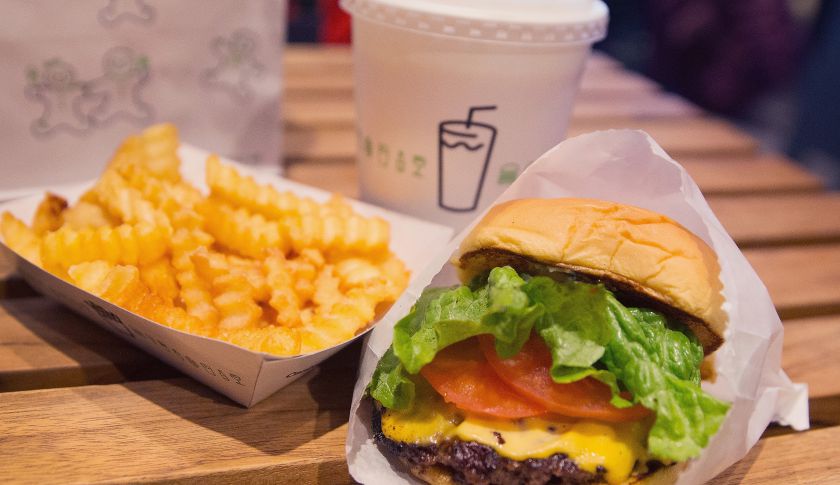Franchising, retail, business

11/03/2015
How do you even begin to address a system that produces 30 million tons of food waste each year? Fortune talked to a few experts. Here’s what they said.
On March 7, TEDxManhattan held its fifth annual “Changing the Way We Eat” conference. The event’s official aim: to “spread ideas that can help fix our broken food system.”
So, how do you even begin to address a system that produces 30 million tons of food waste each year? Fortune talked to a few of the experts who addressed conference attendees. Here’s what they had to say:
Make food more affordable. “The biggest problem with food in America is not enough people can afford it. Forty-nine million Americans live in households that can’t afford enough food, so all the talk about organic, locavore delightfulness and fresh arugula is great. But if you’re in a family that can’t even afford the junk food you’re surviving on now, it’s a secondary issue. The way to fix it is the way we almost ended hunger in the 70s: by having more jobs, paying higher wages, and ensuring that there’s an adequate safety net to fill in the gap. It’s quite simple, we know what works, we know what worked in Scandinavia, we know what’s worked in the past in America, and if we do these simple things, we can end hunger in America almost overnight.” —Joel Berg, Executive Director, New York City Coalition Against Hunger
Don’t put profits before consumer preferences. “For me, the biggest problem with food is portion size driven by somebody’s idea of driving tomorrow’s profits. When you understand what the average size of a Coke was in fast food 25 years ago and you see what it’s grown to today for a small, you say, is that what the consumers were begging for? I don’t think so.” —Danny Meyer, CEO of Union Square Hospitality Group, the company behind Shake Shack
Stay away from processed foods. “We eat too much and it’s over-processed. It’s simple. If you can’t read it, don’t eat it. If it’s white, put it back. And don’t drink your calories. Those are three very simple things I tell most of my patients. Our food is too convenient and too processed, and we eat too much of it.” —Robert Graham, Hofstra North Shore-LIJ School of Medicine, Director of Integrative Health & Wellness, Office of Community and Public Health
Teach yourself and teach your kids. “The biggest problem is that people’s perception of what is healthy is highly skewed because they’ve been brainwashed by the food industry and our government doesn’t support the positive changes that need to happen. We’re in a generation where our children will no longer outlive the adults and so this is a problem that has to be solved immediately. And the only way to immediately solve it is to give people the tools to buy different things with their dollars.” —Stefanie Sacks, culinary nutritionist and author of What the Fork Are You Eating? An Action Plan for Your Pantry and Plate
Pay closer attention to what you eat. “The throwaway generation … has caused a lot of unconscious consumption. I think that the cruelty of how animals are being treated is a normalized form of consumption. Not enough people [are] really thinking about compassion or thinking about how that affects their body. How much food affects the environment. A lot more young people [should know] more about … green jobs development and … homeopathic wellness….” —Ietef “DJ Cavem Moetavation” Vita, international recording artist and founder of Eco-HipHop
Recognize female farmers. “One of the biggest problems with food in the U.S. and beyond is the lack of recognition of women food producers. There are nearly 1 million women farmers across the country, but they rarely receive the same support and investment as their male counterparts. But organizations like the Women, Food, and Agriculture Network, Farm Her, and many others are helping reverse these stereotypes and link and empower women farmers across the country.” —Danielle Nierenberg, President of Food Tank
Respect the earth. “The biggest … problem is soil and earth. Everything grows from that. Everything else comes from that. Millions of acres of farmland are going to disappear in the next 20 years. And we already have soil depletion, so that [the nutrients of] eight oranges are equal to one [from 50 years ago]. It’s all about soil.” —Shen Tong, founder and partner of FOOD-X
Additional reporting by Beth Kowitt.
Fonte:http://fortune.com/2015/03/11/food-waste-america-tedxmanhattan/?utm_content=buffer953c1&utm_medium=social&utm_source=twitter.com&utm_campaign=buffer